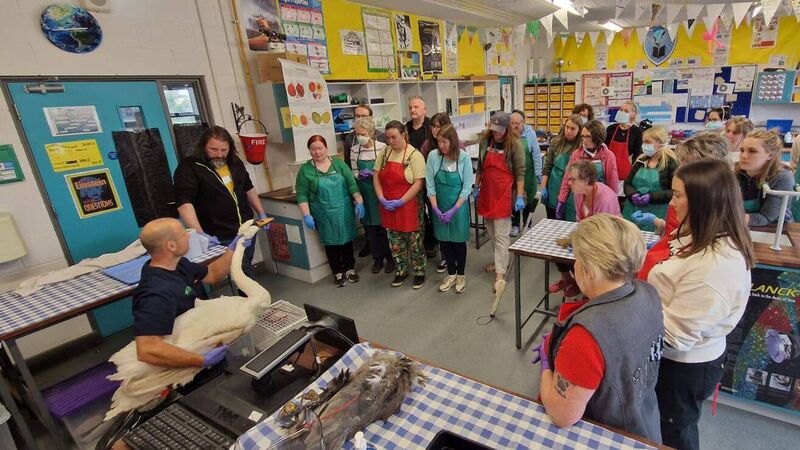Country's first state-of-the-art wildlife rehab and training hospital planned for Co Meath

Introduction to Wildlife Rehab instructor Kieran Corry, director of Corry O'Hare Vet Clinic in Omagh, working with a swan.
Vets caring for wildlife on an ad hoc basis, and overstretched volunteer rehabbers working around the clock, means we are only paying lip service to the country’s wildlife, according to campaigners.
But now, a planning application has been submitted to Meath County Council for the country's first state-of-the-art, purpose-built wildlife rehabilitation and training hospital.













